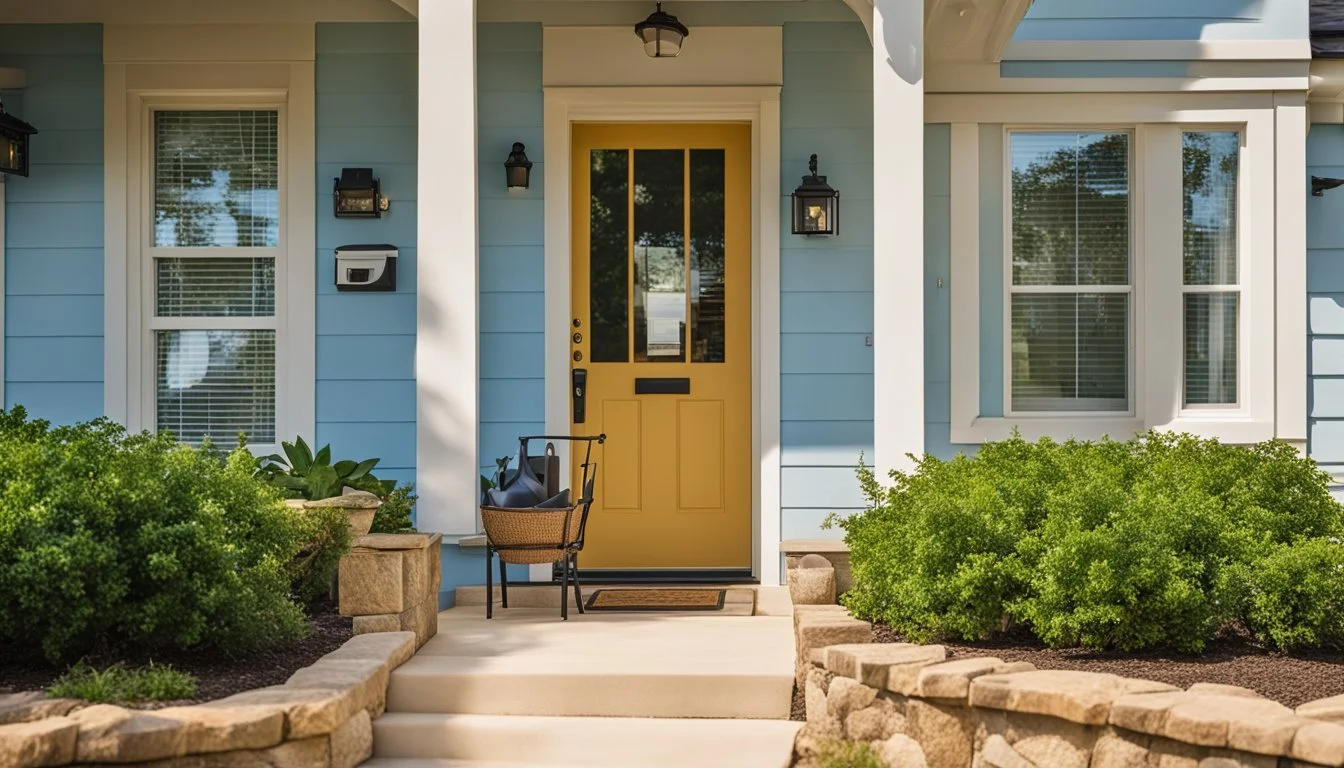12 Essential Services to Set Up in Austin
Your Guide to a Smooth Start
As Austin continues to evolve into a vibrant and dynamic city, the importance of essential services cannot be overstated. These services play a critical role in maintaining the city’s functionality, ensuring that residents have access to fundamental needs and supports.
Understanding what services qualify as essential can help individuals and businesses navigate the complexities of urban living. From healthcare to public utilities, essential services form the backbone of everyday life in Austin, aiming to enhance the quality of life for all its inhabitants.
1) Electricity Connection
Electricity is crucial for any household in Austin, and Austin Energy is the primary provider. They offer a straightforward process to start or transfer service.
New residents can initiate their electricity service online, by phone, or in person. An application process includes a $20 setup fee and a $200 deposit.
Austin Energy is known for its variety of energy options and helpful customer service. They also provide tips and rebates to assist customers in managing their energy consumption effectively.
For those transferring power from a previous residence, Austin Energy allows seamless service continuity. Utilizing online or phone services ensures a hassle-free experience.
If customers need help, they can visit one of Austin Energy's walk-in customer service centers. Staff are available to assist with any inquiries or issues related to the electricity service.
Renters with utilities included in their lease may have the deposit waived. Submitting the required documentation, such as a signed lease and a Landlord Letter of reference, to Customer Care can process this waiver.
Having dependable and efficient electricity service is key to a comfortable living experience in Austin.
2) Water and Sewage Setup
Setting up water and sewage services in Austin involves coordinating with Austin Water, a trusted provider known for its high-quality water.
First, new residents or developers need to determine their service requirements. Once this is done, an engineered tap plan must be submitted to the TAP Plan Review Team.
After approval, customers are required to pay connection fees. Residential customers might need to pay additional security deposits, but there are ways to waive these under certain conditions.
Importantly, building permits are only issued once all tap fees have been paid. Austin Water ensures that drinking water meets safety standards by testing it multiple times each day.
For developers, Utility Development Services assist in acquiring water and wastewater services for new and existing developments. The city's Cross Connection Controls program ensures the public water system remains safe from contamination hazards.
By completing these steps, residents can ensure their water and sewage services are set up efficiently and safely, complying with all local regulations.
3) Internet Service
Setting up reliable internet service in Austin is crucial for staying connected. Austin offers a variety of internet service providers (ISPs) catering to different needs.
Fiber internet is a top choice for many residents. Providers such as AT&T Fiber and Google Fiber offer high-speed connections up to 5 Gbps, ensuring fast and reliable internet access.
Cable internet is widely available in Austin as well. Spectrum is a popular choice, covering approximately 95% of the city. It's known for no data caps and provides solid performance for everyday usage.
For those in areas where fiber and cable are not available, satellite and 5G options are viable alternatives. Services like HughesNet and Viasat offer satellite internet, while Verizon and EarthLink provide 5G internet solutions.
Residents should compare plans and prices from different providers to find the best fit for their needs. Many ISPs provide promotional offers and discounts, which can be beneficial when setting up a new service.
Affordability is important too. Subsidies and discount programs help qualifying households gain access to necessary internet services, ensuring that everyone has the opportunity to stay online.
To sum up, Austin residents have multiple internet options ranging from fiber to satellite, making it easier to find a service that meets individual needs and preferences.
4) Garbage Collection
Austin Resource Recovery provides residential curbside trash collection for single-family homes and multifamily properties with up to four units.
Weekly collection includes trash, recycling, and composting services.
Residents can also schedule bulk item and large brush collections as needed.
A $20.50 fee applies for on-call trash collection services.
The service is easy to schedule by calling 3-1-1 or emailing Austin Resource Recovery.
For those living in multifamily units with five or more units, a private hauler must be used for trash services.
Monthly, all residents pay a $5.00 Clean Community Fee, which funds efforts to maintain cleanliness and enhance livability across the city.
Austin Resource Recovery also operates a drop-off center for hard-to-recycle items, increasing recycling options for the community.
Street sweeping and dead animal collection services add to the comprehensive nature of waste management in Austin.
5) Gas Supply
In Austin, Texas Gas Service stands as the primary provider of natural gas. They serve over 695,000 customers across 100 communities, ensuring reliable and safe gas delivery.
To set up gas service, residents should contact Texas Gas Service directly. The process typically involves filling out an application either online or over the phone.
New customers may be required to pay a deposit depending on their credit history. This deposit ensures continuous service and is refunded with interest under specific conditions.
In case of a gas leak or emergency, it is crucial to leave the area immediately. Once safely away, residents need to call 911 and the emergency number provided by Texas Gas Service: 800-959-5325.
Establishing a gas supply in Austin is straightforward when following the proper procedures. Ensuring timely setup of this essential utility helps in maintaining a comfortable and functional home environment.
6) Cable TV Subscription
In Austin, various cable TV providers offer diverse packages to fit different needs. Charter Communications presents affordable options starting at $44.99 per month for 125+ channels with their TV Select package.
For those seeking more channels, their TV Silver package includes 175+ channels at $74.99 per month. Both packages come with free HD and access to on-demand content through the Spectrum TV App.
Spectrum isn’t the only option. AT&T provides digital TV with plans offering 35+ channels. Additional perks include the ability to record four shows simultaneously and manage the DVR from any room in the house, enhancing convenience.
DIRECTV, available in almost all Austin ZIP codes, offers satellite TV service. Prices begin at $69.99 per month for 75+ channels. This option ensures a wide variety of content for viewers looking for satellite TV capabilities.
Other noteworthy providers include EarthLink, Grande Communications, Google Fiber, and Suddenlink. These companies offer competitive pricing around $45-$50 per month, though channel availability and additional features may vary.
Selecting a cable TV provider in Austin depends on individual preferences, channel requirements, and budget. Each provider offers unique benefits, ensuring there’s a suitable option for every household.
7) Home Security System
Investing in a home security system is crucial for peace of mind in Austin. Several reputable companies offer diverse options to suit different needs and budgets.
TriStar Security, Central Security, and Dyezz Surveillance are well-known providers. They offer services like alarm monitoring and video surveillance.
For those looking for comprehensive protection, systems from companies like SimpliSafe include 24/7 monitoring, HD cameras, and hazard sensors.
Smart home integration is increasingly popular, with systems that work seamlessly with other smart devices. Providers such as ASG Security and Longhorn Smart Home Solutions offer these advanced setups.
Costs vary, with basic plans starting around $19.99 per month. More advanced systems with smart home features may have higher initial setup fees and monthly costs.
Different companies provide additional security features, such as emergency dispatch and advanced control panels. White Knight Locksmith and Security Consultant Pros also offer specialized services in securing homes.
Choosing the right system involves considering factors like budget, level of desired monitoring, and specific security needs. Prioritize companies with good reviews and reliable customer service records for the best experience.
8) Health Insurance
Health insurance is crucial when moving to Austin. Residents have several options to choose from, including marketplace plans available through HealthCare.gov.
For those seeking individual health plans, various companies and HMOs provide coverage tailored to different needs. The Texas Department of Insurance offers a comprehensive list.
In Austin, Affordable Care Act (ACA) health plans cover essential benefits like emergency services, maternity care, and prescription drugs. Many plans also feature affordable primary care visits and mental health counseling.
Local resources assist with enrollment. People's Community Clinic offers free application assistance. TexHealth Central Texas provides information on employer-sponsored coverage.
Additionally, Central Health's MAP and MAP Basic programs offer essential health services. These programs cater to eligible individuals and families, covering primary care, dental care, and prescriptions.
9) Vehicle Registration
One of the first steps for new Austin residents or those purchasing a new vehicle is to register the vehicle. This can be handled at your county tax office. In Travis County, services are available through the Travis County Tax Office, while the Austin Regional Service Center provides support for various registration activities.
Your registration sticker is a crucial document. It displays your license plate number, the county of registration, and a partial vehicle identification number.
Vehicle registration expires on the last day of the month displayed on your sticker. For example, if the sticker reads 12/23, the registration is valid until the end of December 2023.
Commercial vehicles have specific registration requirements. It's essential to understand these to ensure compliance. Residents can renew their registration online or by visiting a local tax office. Some services even offer the option to go paperless.
Always ensure that your vehicle registration is current to avoid penalties and ensure your vehicle is legally allowed on the road. For any questions or further information, the Travis County Tax Office and the Austin Regional Service Center are reliable resources.
10) Driver's License
Setting up a driver's license is a crucial step for new residents in Austin.
Appointments are required for all in-office services at the Department of Public Safety (DPS). Prospective drivers should schedule their appointments online.
Before testing, new drivers need to complete the two-hour IMPACT Texas Teen Drivers Course. This is mandatory.
The driving test can be taken with the DPS or an authorized school like Austin Driving School. Familiar environments may ease nerves during testing.
For those needing occupational licenses, specific documentation including full name, date of birth, and driver's license number must be submitted to the DPS.
Once all requirements are met, drivers can enjoy their new Texas driver's license, allowing them to explore Austin's roads with confidence.
11) Homeowner's Insurance
Homeowner's insurance is crucial for protecting your property and belongings in Austin, TX. The average cost of homeowners insurance in Austin is approximately $2,158 per year, or roughly $180 per month, based on 2022 rates.
Different providers offer varying rates and coverage options. Texas Farmers provides a notable option with rates as low as $236 per year, significantly lower than the city average.
Several factors influence the cost of homeowner's insurance. These include the construction type of your home and the coverage limits chosen. For instance, homes built with certain materials might incur additional costs.
Residents can find ways to save on their homeowner's insurance premiums. This might involve bundling with other insurance policies, increasing deductibles, or installing safety features in the home.
When choosing an insurance provider, it's essential to compare quotes from multiple carriers. This ensures you find the best rate and coverage suitable for your needs.
Popular companies in Austin offering competitive homeowners insurance include Texas Farmers and Lemonade. They provide a range of policy options to protect your investment.
Homeowners in Austin should also review their policies annually to make sure their coverage remains adequate as their circumstances change.
12) Phone Plan
Choosing the right phone plan is crucial when moving to Austin. The city offers comprehensive 5G and 4G LTE coverage from major carriers like AT&T, T-Mobile, and Verizon Wireless. These providers ensure strong connectivity throughout the metropolitan area.
AT&T's plans are popular for their extensive coverage and reliability. They offer a variety of options, from unlimited plans to family bundles. T-Mobile is known for its competitive pricing and excellent 5G network. Verizon, on the other hand, excels in network reliability and nationwide coverage.
For budget-conscious residents, smaller carriers like Spectrum Mobile and Ultra Mobile offer affordable alternatives. Spectrum Mobile's plans start at $19.99 per month, providing a balance between price and service quality. Ultra Mobile offers plans starting from as low as $5 per month with 5GB of data, ideal for light users.
It's advisable to compare plans based on individual needs. Some may require unlimited data, while others might prioritize price or international roaming features. Some plans also offer additional perks like streaming service subscriptions or hotspot data.
Combining phone plans with internet services can provide additional savings. Many carriers offer bundled packages that include both mobile and home internet services, starting at around $55 per month. This can be a cost-effective solution for new Austin residents.
Choosing a phone plan in Austin involves various considerations, but the city's robust telecommunications infrastructure ensures quality options for all preferences and budgets.
Understanding Austin's Essential Services
Austin's essential services cover a diverse range of sectors crucial for community well-being. These services ensure the city's infrastructure functions smoothly and residents have access to necessary resources.
Overview of Key Categories
Key categories of essential services in Austin include health care, public safety, utilities, and emergency services.
Health care involves hospitals, clinics, and emergency medical services. These facilities provide critical care and medical support to residents.
Public safety encompasses police, fire departments, and ambulance services that maintain law and order and respond to emergencies.
Utilities include water supply, electricity, gas, and waste management. These systems are fundamental for daily life, ensuring residents have clean water, power, and proper waste disposal.
Emergency services involve disaster response and management, including Homeland Security and Emergency Management.
Why Setting Up Essential Services Matters
Setting up these services is vital for maintaining the quality of life in Austin. Reliable health care ensures that residents receive timely and adequate medical attention.
Public safety is crucial for protecting the community, reducing crime, and responding effectively to emergencies. Utility services ensure the city's infrastructure supports everyday activities, from clean drinking water to waste management.
Emergency services prepare the city for natural disasters, providing a coordinated response that minimizes harm and aids in recovery. Robust essential services support a stable and thriving community, making Austin a resilient and desirable place to live.
Navigating Utility Services
Setting up utility services in Austin involves arranging electricity, water, natural gas, and waste management. Having clear instructions on how to handle each service will ensure a smooth transition to your new home.
Electric and Water Services
In Austin, electricity is provided by Austin Energy. To start service, you can either call their customer care at 512-494-9400 or sign up online. Be prepared for a $20 setup fee and a $200 deposit.
The City of Austin is the sole provider of water services. You can manage both electric and water services through the City of Austin Utilities, either by phone, online, or in person at a customer service center.
Natural Gas Providers
Unlike electricity and water, Austin residents have multiple choices for natural gas providers. The most common provider is Texas Gas Service. To set up service, you can visit their website or contact their customer support.
You'll need to provide identification and address details along with a potential deposit, depending on your credit history. Additional providers like Atmos Energy and CenterPoint Energy offer services in certain areas, so it is wise to compare rates and services.
Trash and Recycling Services
Waste management in Austin is handled through the City of Austin's Resource Recovery service. This includes trash collection, recycling, and composting.
To set up service, visit the AustinTexas.gov website or call 311. They provide different cart sizes for trash and recycling and offer weekly pickup for most areas. Be sure to familiarize yourself with the city's recycling guidelines to ensure efficient use of services.











